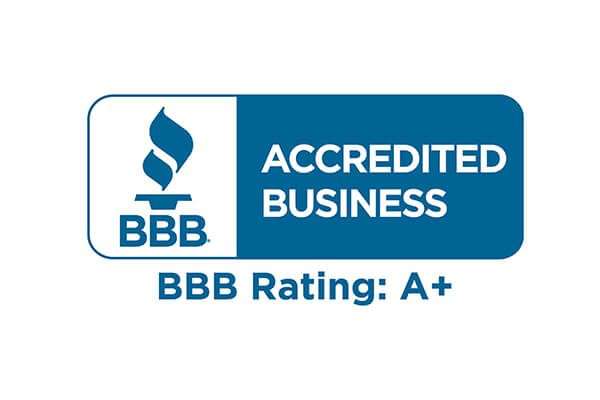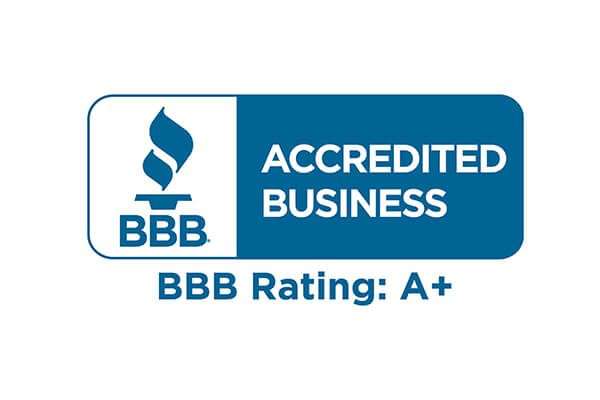Unless you’re a business owner, there’s a chance you’ve never heard of the Better Business Bureau. The BBB is an international non-profit that strives to create “an ethical marketplace where buyers and sellers trust each other.”
The BBB is a huge organization in the US, and small and large businesses alike endeavor to earn high ratings from them. According to the BBB’s website, a rating represents the organization’s “opinion of how the business is likely to interact with its customers.”
Savvy consumers should take BBB ratings into account when dealing with any business, but especially when working with smaller and not-yet established businesses.
 Audicus’ minimal number of complaints, positive customer reviews, and ethical and transparent business practices all added up to a stellar BBB rating. Audicus has been accredited by the BBB since 2014 and is a trusted seller of top-notch hearing aids and amplification devices.
Now that you’re a little more knowledgeable about BBB ratings, you can confidently go out into the world as a savvy consumer.
Before making any big purchases, especially ones for your health, check out the company’s BBB rating and customer reviews. It’s important to do your research when your health is in your hands!
Audicus’ minimal number of complaints, positive customer reviews, and ethical and transparent business practices all added up to a stellar BBB rating. Audicus has been accredited by the BBB since 2014 and is a trusted seller of top-notch hearing aids and amplification devices.
Now that you’re a little more knowledgeable about BBB ratings, you can confidently go out into the world as a savvy consumer.
Before making any big purchases, especially ones for your health, check out the company’s BBB rating and customer reviews. It’s important to do your research when your health is in your hands!
How Are Businesses Rated?
The BBB ratings are based on several different factors:- The business’ complaint history with the BBB, taking into account the number of complaints, size of the business, how and when the complaints were settled, and more.
- The type of business and the length of time in business are also important elements of the BBB rating
- Transparent practices are an incredibly important factor when calculating a business’ rating, as transparency is one of the top priorities for consumers
- Failure to honor commitments to BBB can have a detrimental effect on a BBB rating for a business
- Licensing and government actions, such as failure to obtain necessary licenses or government actions that raise questions about the business’ ethics or reliability
- Advertising issues, such as untruthful or unethical advertising practices, can also have a negative impact on a BBB rating
Why Do BBB Ratings Matter to Me?
As a hearing aid consumer, you need to be even more vigilant than most people in the marketplace today. Hearing aids, while consumer products are directly related to your health and well-being—therefore, it is paramount that your hearing aids are manufactured and sold from trusted, legitimate sources. You probably wouldn’t buy hearing aids from someone on Craigslist, so it’s just as important to thoroughly investigate where you are getting your devices. Luckily, the BBB website has a handy search function that you can utilize to easily and quickly look up businesses that you’re considering. As mentioned above, A+ is the best rating you can earn from the BBB, and your very own Audicus has earned that! Audicus’ minimal number of complaints, positive customer reviews, and ethical and transparent business practices all added up to a stellar BBB rating. Audicus has been accredited by the BBB since 2014 and is a trusted seller of top-notch hearing aids and amplification devices.
Now that you’re a little more knowledgeable about BBB ratings, you can confidently go out into the world as a savvy consumer.
Before making any big purchases, especially ones for your health, check out the company’s BBB rating and customer reviews. It’s important to do your research when your health is in your hands!
Audicus’ minimal number of complaints, positive customer reviews, and ethical and transparent business practices all added up to a stellar BBB rating. Audicus has been accredited by the BBB since 2014 and is a trusted seller of top-notch hearing aids and amplification devices.
Now that you’re a little more knowledgeable about BBB ratings, you can confidently go out into the world as a savvy consumer.
Before making any big purchases, especially ones for your health, check out the company’s BBB rating and customer reviews. It’s important to do your research when your health is in your hands!




